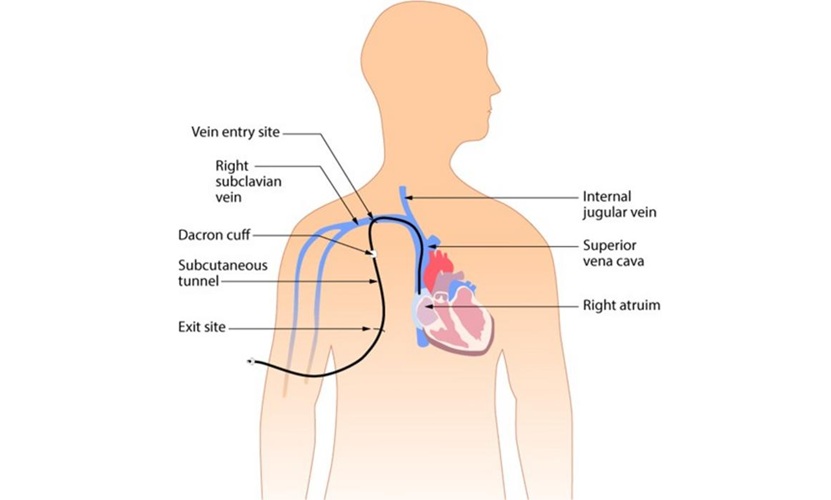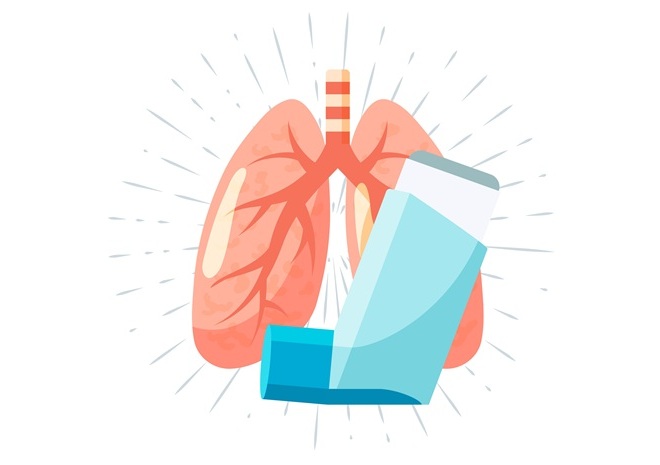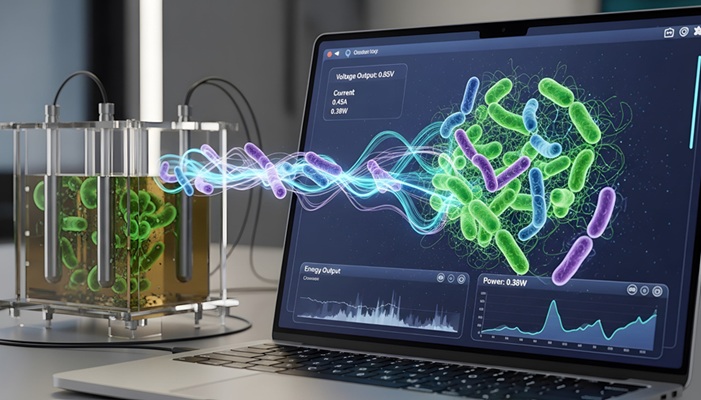Cybersecurity Service Protects Medical Devices from Attacks
|
By HospiMedica International staff writers Posted on 12 Mar 2020 |
A service that combines medical device expertise, artificial intelligence (AI), and process management tools aids hospitals in their fight against cybersecurity threats.
The GE Healthcare (GE, Little Chalfont, United Kingdom) Skeye platform is a security operations center (SOC) designed to augment hospitals’ existing resources and capabilities by providing proactive monitoring and complete medical device security assessment. By helping hospitals detect, analyze, and respond to cybersecurity threats and events in real time, risks and vulnerabilities can be identified, action plans recommended, and remediation advice and execution strategies can be implemented.
GE Healthcare’s Skeye is a vendor-agnostic solution that helps protect any networked medical devices, regardless of age, manufacturer, or operating system. It uses AI-enabled tools together with the SOC to provide 360˚ coverage, starting with risk assessment, and moving onto real-time networked device discovery. Skeye also automates connected device inventory and equipment risk profiling to create a dynamic management system for device onboarding and decommissioning. A SOC team provides continuous monitoring, threat detection, and remediation to hospital connected medical devices under a GE Healthcare service contract.
“Our customers need visibility to see what medical devices are connected to their networks and the right resources to mitigate potential threats. This new offering provides customers with 360˚ threat visibility and a resolution roadmap to help defend and protect against vulnerabilities,” said Matt Silva, chief information security officer at GE Healthcare. “Our security operations center can augment customers’ in-house security teams by addressing cybersecurity events, as well as providing the latest information on malware and other malicious threats.”
“We wanted to stay current with cybersecurity trends, assess the risk across our hospitals and clinics, and analyze our own preparedness. GE Healthcare’s Skeye offering helps us do just that,” said Chad Friend, director of IT at T.J. Regional Health (Glasgow, KY, USA). “As a small hospital group, we don’t have a large IT team. Accessing the global scale, tools and expertise of GE Healthcare gave us a partner to ensure we have a robust cybersecurity process in place and access to the latest information and action plans.”
Security incidents can profoundly impact an organization’s productivity, finances, quality of care and reputation; and as more devices become connected, cybersecurity risk increases. In 2018 alone, 82% of hospital technology experts in the United States reported a significant security incident, with the cost of an average data breach exceeding USD 3.8 million.
Related Links:
GE Healthcare
The GE Healthcare (GE, Little Chalfont, United Kingdom) Skeye platform is a security operations center (SOC) designed to augment hospitals’ existing resources and capabilities by providing proactive monitoring and complete medical device security assessment. By helping hospitals detect, analyze, and respond to cybersecurity threats and events in real time, risks and vulnerabilities can be identified, action plans recommended, and remediation advice and execution strategies can be implemented.
GE Healthcare’s Skeye is a vendor-agnostic solution that helps protect any networked medical devices, regardless of age, manufacturer, or operating system. It uses AI-enabled tools together with the SOC to provide 360˚ coverage, starting with risk assessment, and moving onto real-time networked device discovery. Skeye also automates connected device inventory and equipment risk profiling to create a dynamic management system for device onboarding and decommissioning. A SOC team provides continuous monitoring, threat detection, and remediation to hospital connected medical devices under a GE Healthcare service contract.
“Our customers need visibility to see what medical devices are connected to their networks and the right resources to mitigate potential threats. This new offering provides customers with 360˚ threat visibility and a resolution roadmap to help defend and protect against vulnerabilities,” said Matt Silva, chief information security officer at GE Healthcare. “Our security operations center can augment customers’ in-house security teams by addressing cybersecurity events, as well as providing the latest information on malware and other malicious threats.”
“We wanted to stay current with cybersecurity trends, assess the risk across our hospitals and clinics, and analyze our own preparedness. GE Healthcare’s Skeye offering helps us do just that,” said Chad Friend, director of IT at T.J. Regional Health (Glasgow, KY, USA). “As a small hospital group, we don’t have a large IT team. Accessing the global scale, tools and expertise of GE Healthcare gave us a partner to ensure we have a robust cybersecurity process in place and access to the latest information and action plans.”
Security incidents can profoundly impact an organization’s productivity, finances, quality of care and reputation; and as more devices become connected, cybersecurity risk increases. In 2018 alone, 82% of hospital technology experts in the United States reported a significant security incident, with the cost of an average data breach exceeding USD 3.8 million.
Related Links:
GE Healthcare
Channels
Critical Care
view channel
AI Tool Identifies Trauma Patients Requiring Blood Transfusions Before Reaching Hospital
Severe bleeding is one of the most common and preventable causes of death after traumatic injury. However, current tools often fail to accurately identify which patients urgently require blood transfusions,... Read more
New Clinical Guidelines to Reduce Central Line-Associated Bloodstream Infection
Central venous catheters are essential in intensive care units, delivering life-saving medications, monitoring cardiovascular function, and supporting blood purification. However, their widespread use... Read moreSurgical Techniques
view channelAI-Based OCT Image Analysis Identifies High-Risk Plaques in Coronary Arteries
Lipid-rich plaques inside coronary arteries are strongly associated with heart attacks and other major cardiac events. While optical coherence tomography (OCT) provides detailed images of vessel structure... Read moreNeural Device Regrows Surrounding Skull After Brain Implantation
Placing electronic implants on the brain typically requires removing a portion of the skull, creating challenges for long-term access and safe closure. Current methods often involve temporarily replacing the skull or securing metal plates, which can lead to complications such as skin erosion and additional surgeries.... Read morePatient Care
view channel
Revolutionary Automatic IV-Line Flushing Device to Enhance Infusion Care
More than 80% of in-hospital patients receive intravenous (IV) therapy. Every dose of IV medicine delivered in a small volume (<250 mL) infusion bag should be followed by subsequent flushing to ensure... Read more
VR Training Tool Combats Contamination of Portable Medical Equipment
Healthcare-associated infections (HAIs) impact one in every 31 patients, cause nearly 100,000 deaths each year, and cost USD 28.4 billion in direct medical expenses. Notably, up to 75% of these infections... Read more
Portable Biosensor Platform to Reduce Hospital-Acquired Infections
Approximately 4 million patients in the European Union acquire healthcare-associated infections (HAIs) or nosocomial infections each year, with around 37,000 deaths directly resulting from these infections,... Read moreFirst-Of-Its-Kind Portable Germicidal Light Technology Disinfects High-Touch Clinical Surfaces in Seconds
Reducing healthcare-acquired infections (HAIs) remains a pressing issue within global healthcare systems. In the United States alone, 1.7 million patients contract HAIs annually, leading to approximately... Read moreHealth IT
view channel
EMR-Based Tool Predicts Graft Failure After Kidney Transplant
Kidney transplantation offers patients with end-stage kidney disease longer survival and better quality of life than dialysis, yet graft failure remains a major challenge. Although a successful transplant... Read more
Printable Molecule-Selective Nanoparticles Enable Mass Production of Wearable Biosensors
The future of medicine is likely to focus on the personalization of healthcare—understanding exactly what an individual requires and delivering the appropriate combination of nutrients, metabolites, and... Read moreBusiness
view channel
Medtronic to Acquire Coronary Artery Medtech Company CathWorks
Medtronic plc (Galway, Ireland) has announced that it will exercise its option to acquire CathWorks (Kfar Saba, Israel), a privately held medical device company, which aims to transform how coronary artery... Read more
Medtronic and Mindray Expand Strategic Partnership to Ambulatory Surgery Centers in the U.S.
Mindray North America and Medtronic have expanded their strategic partnership to bring integrated patient monitoring solutions to ambulatory surgery centers across the United States. The collaboration... Read more
FDA Clearance Expands Robotic Options for Minimally Invasive Heart Surgery
Cardiovascular disease remains the world’s leading cause of death, with nearly 18 million fatalities each year, and more than two million patients undergo open-heart surgery annually, most involving sternotomy.... Read more
















